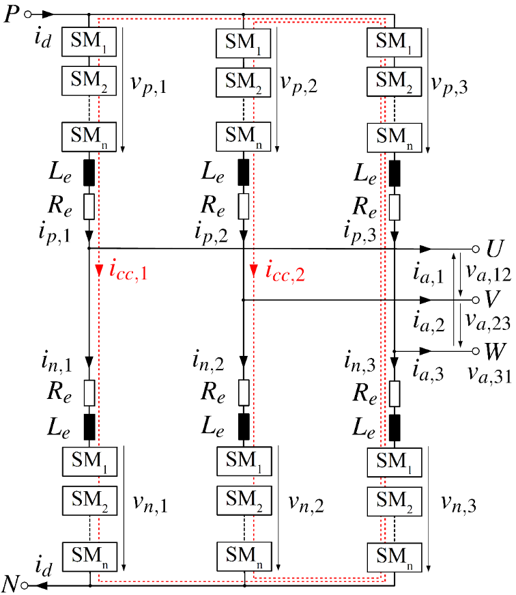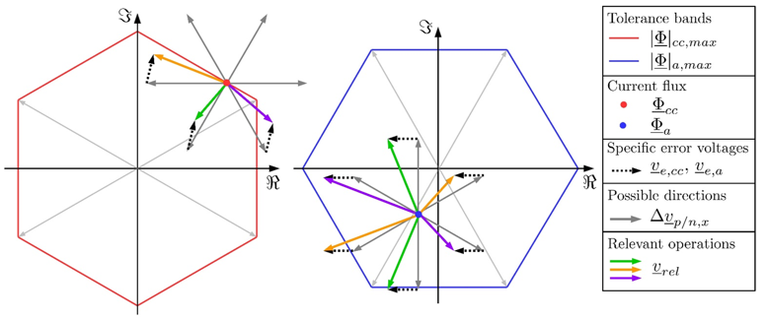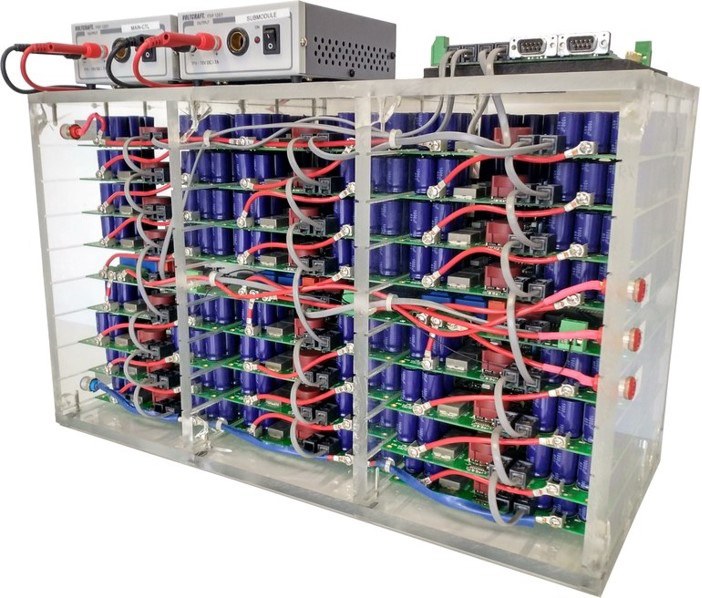Multi-Variable Control of Modular Multilevel Converters
Modular multilevel converters (MMC) have become state of the art in numerous high power applications (HVDC/grids, industrial drives, ships, ...) because of several advantages. These are improved system reliability and scalability, significantly reduced filter effort, the possibility of fully electronic fault handling, lower losses and higher efficiency. In order to entirely utilize these advantages, novel and enhanced control concepts have been developed. Known concepts from conventional converter systems are insufficient, because the higher number of degrees of freedom in MMCs need to be considered and beneficially capitalised. Our research focusses on further improvement of multiple control layers:
1) The upper level controller, which ensures the total power balance of the DC and AC side (grid synchonisation) and the balancing of arm energies.
2) The lower level controller, which determines gate signals of submodule switches based on reference and measured values. It also balances submodule capacitor voltages within the arms.
Fig. 1 shows the structure of a MMC. A total number of 6 independently adjustable variables exist (yellow highlighted). Namely, the circular currents (2-components), the AC-currents (2 components), the DC-current (1 component) and the common mode voltage (1 component). We developed a lower level controller, called multivariable control (MVC, see reference list), which enables the adjustment of all named variables, simulatenously. Main features of this concept are:
1) Feasisiblity of high capacitor voltage ripples enable reduction of capacitor size.
2) Direct specification of tolerance bands regarding current and voltage errors (see Fig. 2).
3) High control bandwidth in order to handle faults or transients.
4) Minimization of arm inductors.
5) Low switching frequency under steady state conditions.
The MVC concept has been implemented on FPGA-hardware and tested with a down scaled MMC prototype (see Fig. 3). This converter has a rated power of >10kW and contains 96 full-bridge submodule whith a nominal capacitor voltage of 50V.

Fig 1: Structure of MMC

Fig 2: Hexagonial shaped tolerance bands of CC & AC

Fig 3: Down-scaled MMC prototype with 96 fullbridge submodules